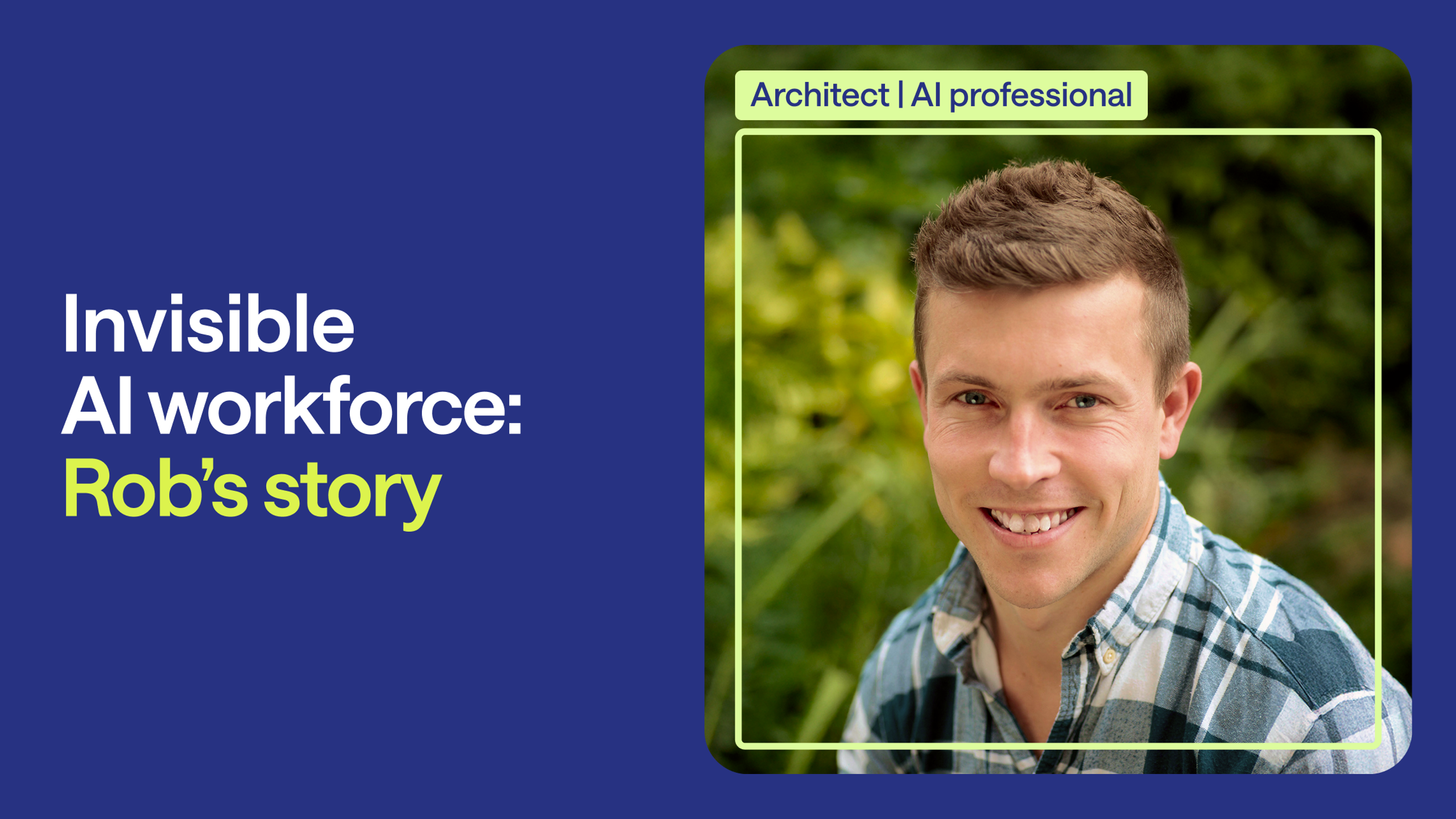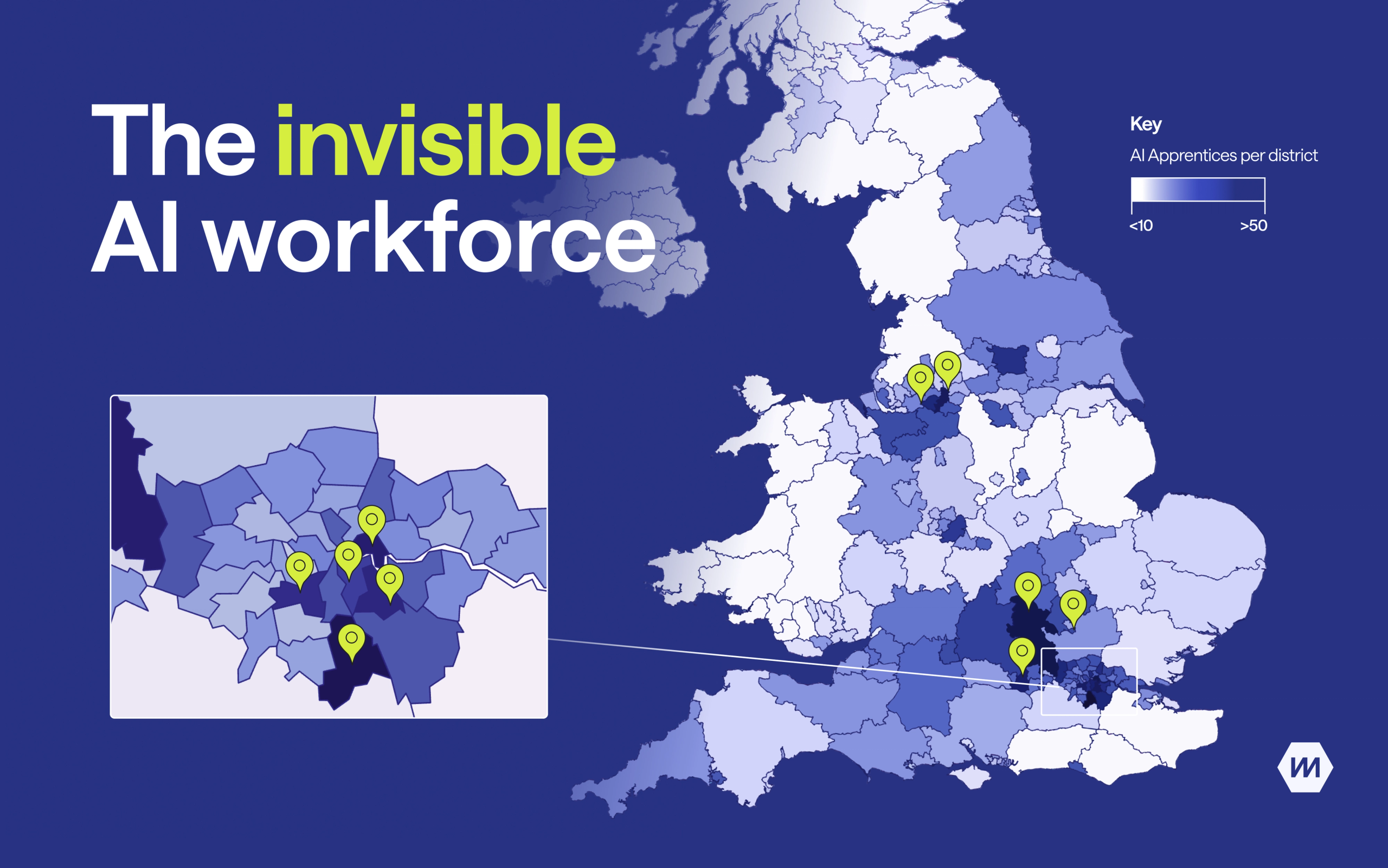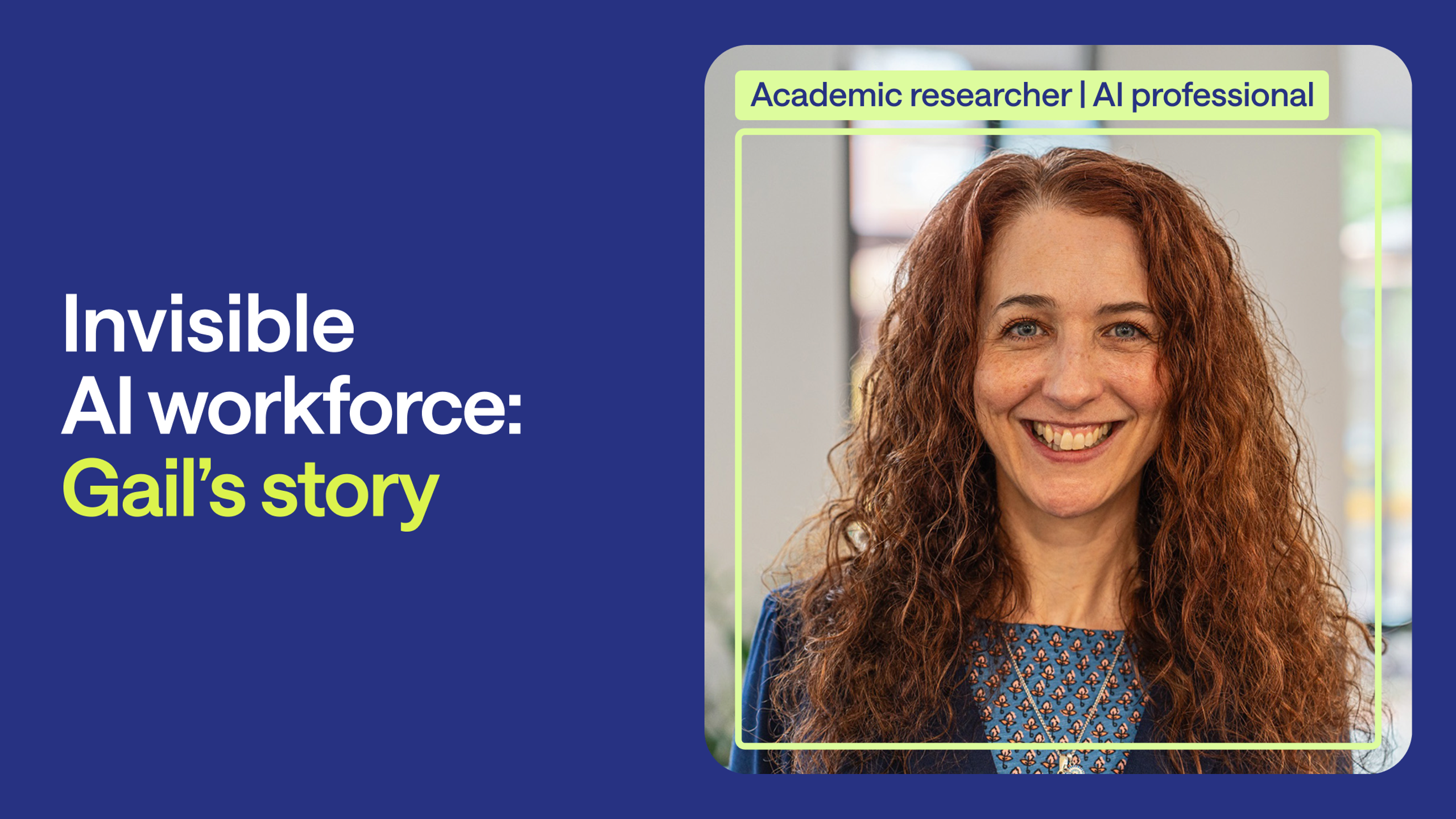New Multiverse analysis has shown how over two-thirds of people applying AI at work are in roles not traditionally associated with tech.
This includes nurses, surveyors, librarians and lecturers, challenging the narrow definition of ‘AI talent’.
This is the second in our series hearing from Multiverse AI apprentices, based in varied jobs around the UK, who are part of this emerging class of AI jobs - the 'invisible' AI workforce.
How AI helps reduce the burden of paperwork for one small business
An architect by trade, Rob Streather set up a small business with his brother in 2016. Now, running their bespoke kitchen and joinery practice, Shape London(opens new window), means juggling everything from workshop safety to client strategy and marketing.
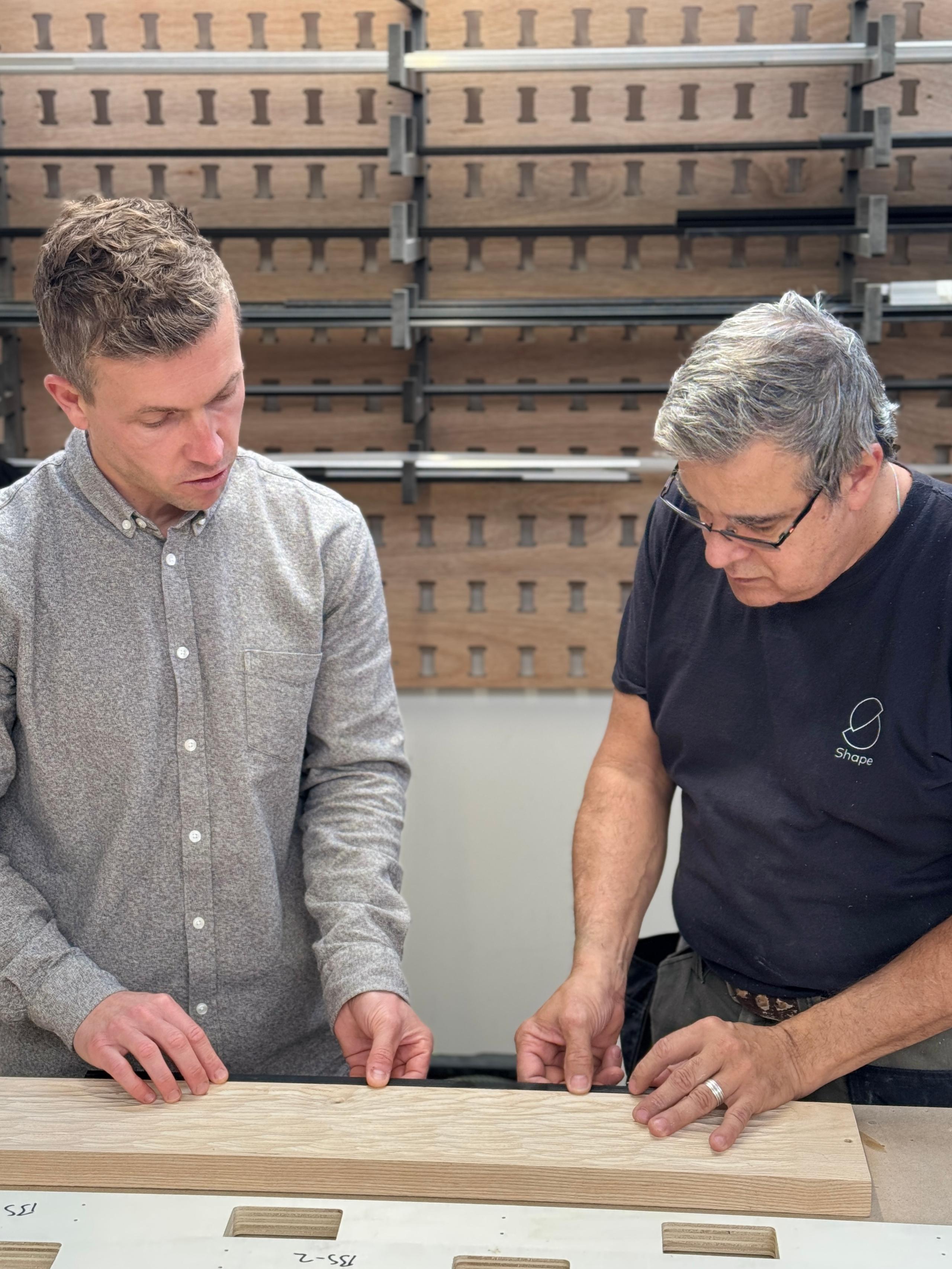
Rob, left, in his workshop with a colleague
AI has helped Rob transform their operations by automating crucial but time-consuming administrative tasks. He has built systems to automatically collate complex health and safety documents and streamline machine inductions for new staff, improving workshop safety and simplifying compliance.
This has freed up invaluable time, allowing him to focus on business development and client-facing work. Rob is now using AI to assist with everything from creating marketing content to developing business strategy, enabling his small practice to operate with the efficiency and agility of a much larger firm.
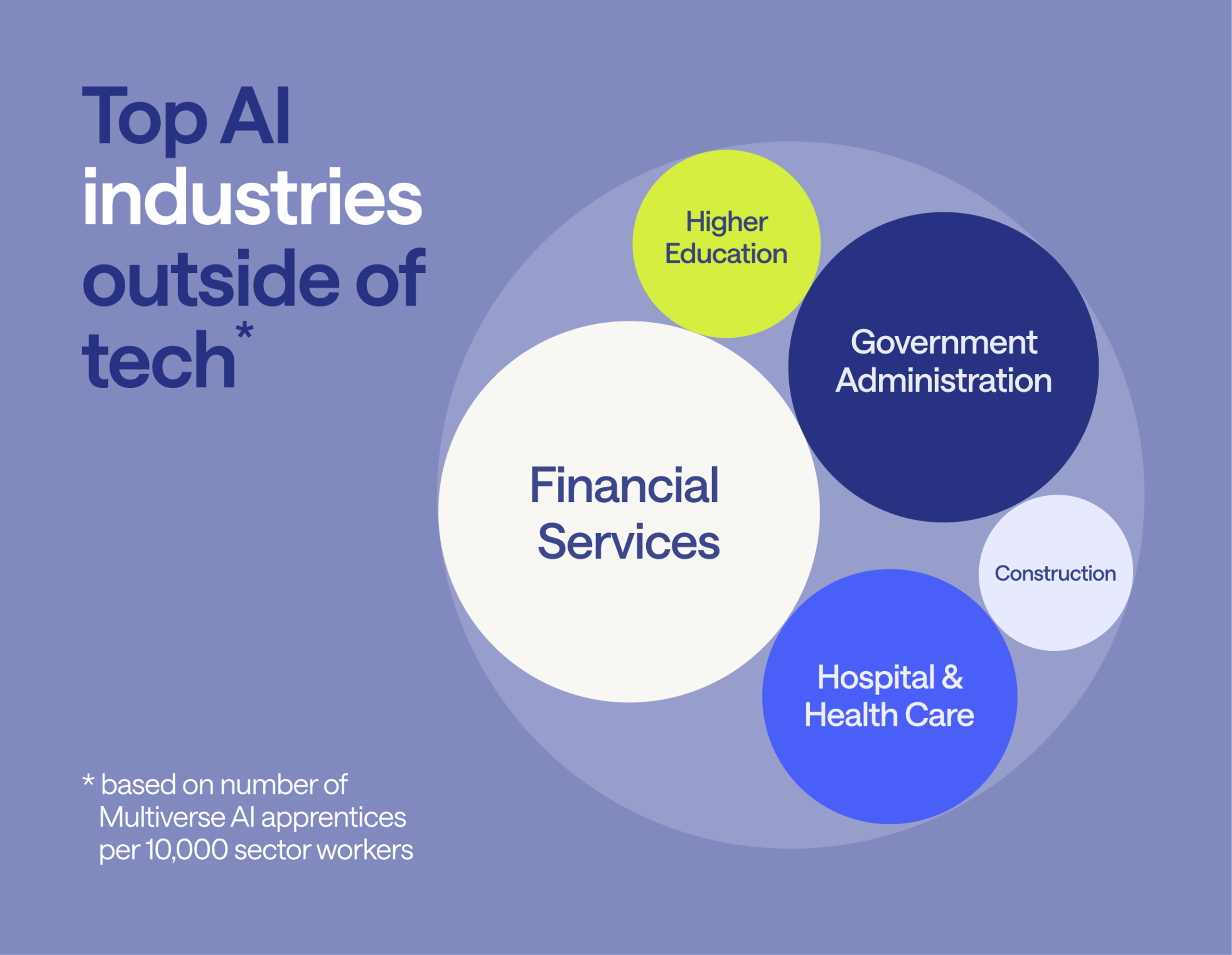
AI is rapidly being adopted in critical sectors far beyond the technology industry. Underlining this, construction is one of the industries with the highest density of AI apprentices outside of those classified by the ONS as ‘digital industries(opens new window)’.
